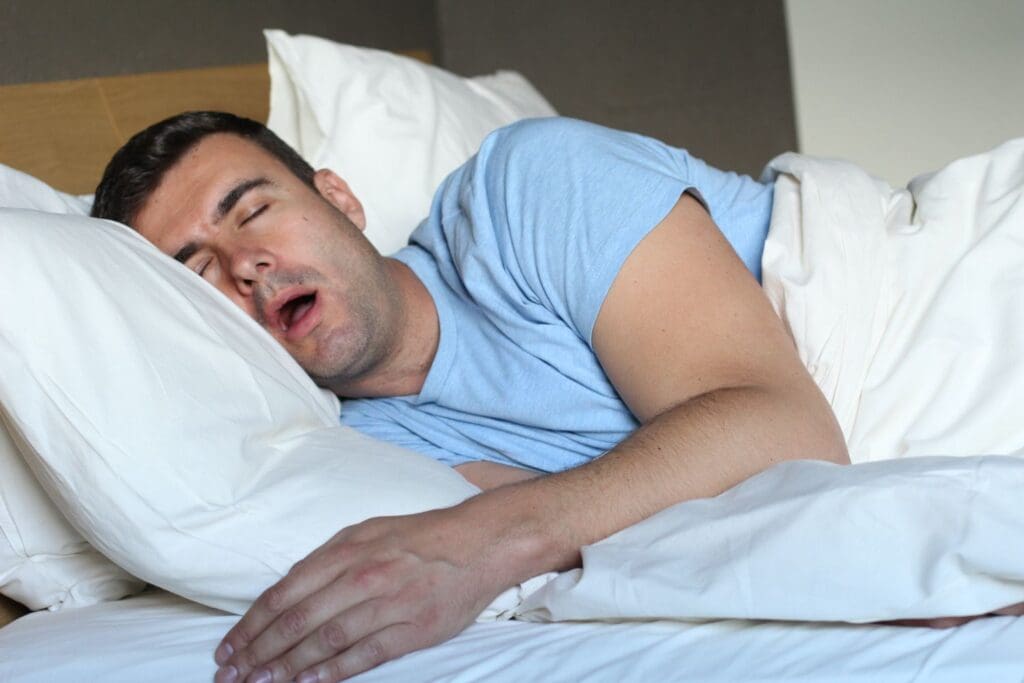Getting better sleep can really change your life. But if you snore, you might wake up feeling tired instead of refreshed. Snoring can also be a sign of sleep apnea, a serious sleep problem. That’s why at Flax Dental in Atlanta, Dr. Hugh Flax offers NightLase laser treatment to help stop snoring.
This new treatment from our cosmetic dentist helps patients sleep better. Call (404) 255-9080 to learn more about our advanced dental lasers and get the restful sleep you need! We also provide cosmetic dental care for everyone in Sandy Springs and Atlanta, GA.

What Is NightLase?
NightLase is a laser treatment for snoring and mild to moderate sleep apnea. This new technology focuses on the soft tissues in the mouth and throat that cause snoring and breathing problems.
The gentle laser light tightens and strengthens the soft palate and uvula to stop them from vibrating and collapsing. Unlike other treatments for snoring, NightLase is non-surgical, so it doesn’t involve any cuts. You will hardly feel any pain or have downtime afterward.
Meet Dr. Flax
Dr. Flax has many years of experience helping people have healthier mouths and better sleep. He is known worldwide for offering the latest and best treatments, which brings patients from far and wide. But it’s his kind and caring approach that keeps them coming back again and again. Better sleep is within reach!
How Does NightLase Work?
NightLase uses advanced laser technology to treat snoring. The device sends short pulses of laser light into the soft tissues of the mouth and throat. This light creates heat that makes the collagen contract and the tissue firm up. This tightens the soft palate to reduce the vibrations that cause snoring.
The NightLase treatment lasts less than 30 minutes and doesn’t need anesthesia. Most patients say they feel little or no discomfort during or after the procedure. You’ll notice better snoring and breathing right away. More sessions will give you the best results, and follow-up treatments can help each year or if your symptoms return.
The NightLase Procedure at Flax Dental
Initial Consultation
We start by setting up a consultation at our Atlanta dental office. At this visit, Dr. Flax will check your health history, look at your mouth and throat, and discuss your snoring and sleep problems. He’ll decide if NightLase could work for you, depending on how bad your symptoms are. Before your first meeting, we’ll need a recent sleep study report.
Pre-Treatment Prep
You don’t need to do anything special before your NightLase appointment. Just make sure your mouth is clean and avoid wearing a lot of makeup. Taking a pain reliever like those you can buy without a prescription might help you feel more comfortable. Also, let Dr. Flax know if anything has changed with your health or the medicines you take since your last visit.
In-Office NightLase Treatment
The NightLase procedure takes about 20 to 30 minutes, right in the dental chair. You’ll wear eye protection while the handheld laser wand delivers pulses to the soft tissues of your mouth and throat. You may feel some mild tingling or warming sensations. Most patients report little to no pain.
Post-Procedure Recovery
There is no recovery or downtime after your NightLase treatment. You can drive yourself home and resume normal activities right away. Some temporary minor soreness or swelling may occur but typically resolves within 48 hours. Use over-the-counter pain medication as needed for relief.
Follow-Up Appointments
Based on your initial snoring/apnea severity, Dr. Flax will schedule additional NightLase sessions for optimal improvement. We usually space follow-ups two to four weeks apart. Annual maintenance visits can also sustain the effects long-term.
Candidates for NightLase
NightLase is intended for patients who suffer from chronic, disruptive snoring. This treatment is also effective for mild to moderate obstructive sleep apnea. Ideal candidates for NightLase include those who:
- Snore loudly regularly
- Have been diagnosed with mild or moderate sleep apnea
- Are unable to use CPAP (continuous positive airway pressure) devices
- Want to avoid surgery or implants
- Have mild anatomic obstruction in the nose, throat, or palate
- Are in overall good health
Patients with significant nasal obstruction or severe sleep apnea are not candidates for NightLase. Our Sandy Springs dentist will determine if you’re suitable for this therapy.
Post-NightLase Treatment Care
You don’t have to do anything special before or after NightLase treatment. You can drive home and go back to work or your usual activities right away.
Potential side effects are mild and temporary. These may include:
- Mild throat or mouth soreness for one to two days
- Light swelling around the uvula or soft palate
- The sensation of a tickle or dry throat for a few days
Over-the-counter oral pain relievers are usually sufficient to alleviate any discomfort. Be sure to keep follow-up appointments with our Sandy Springs dentist to monitor your symptoms and sleep improvements. Let Dr. Flax know if snoring or apnea persists so he can adjust your treatment plan.
NightLase FAQs
What kind of laser is used in NightLase?
NightLase utilizes a gentle, low-level Er: YAG laser that delivers highly targeted light energy to tissues. This stimulates tightening and reduces vibration and looseness in the soft palate, uvula, and throat.
What causes snoring?
Snoring stems from an airway obstruction. It might result from:
- Sleep apnea
- Your mouth anatomy
- Genetic factors
- A deviated septum
- Poor sleeping positions
- Sleep deprivation
- Alcohol consumption
Additionally, some people are at higher risk of snoring than others. Those risk factors include obesity, being male, older age, having a wide neck or narrow airways, and sinus problems
How long do NightLase results last?
Improvements in snoring and breathing from NightLase can last one year or longer. We recommend maintenance sessions annually, or sooner if loud snoring returns. The treatment aims to provide long-term tightening of the throat tissues.
Can NightLase cure sleep apnea?
For mild sleep apnea, NightLase can effectively open airways and reduce apneic events. For moderate to severe apnea, we can use this treatment along with CPAP or other therapies. NightLase may allow lower CPAP pressure settings for greater comfort.
